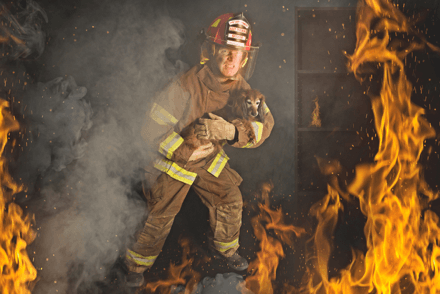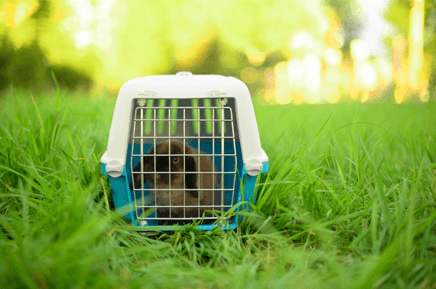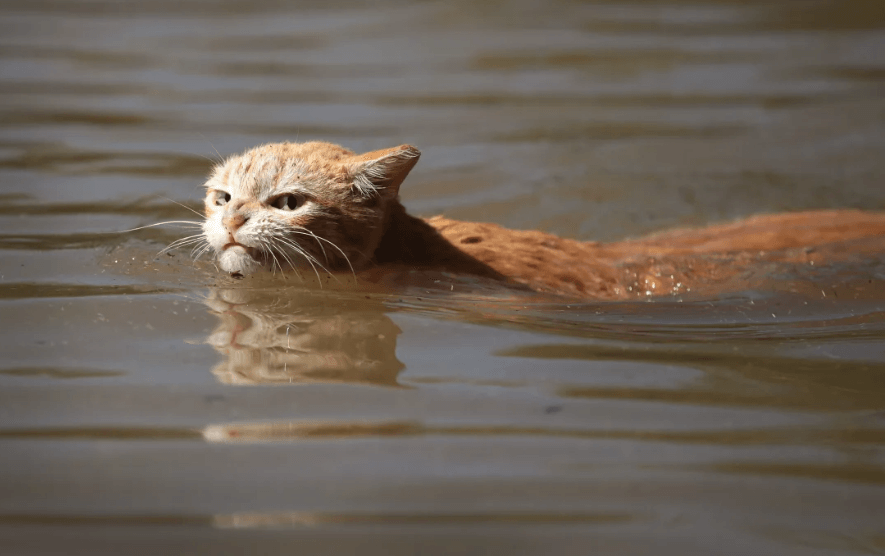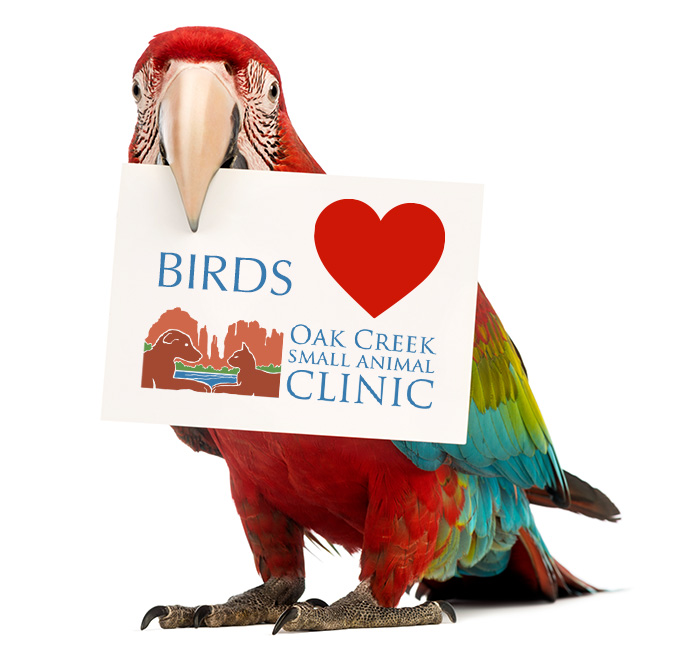Every moment is crucial in a disaster. Being prepared can make all the difference regarding your pet’s safety and well-being. At Oak Creek Small Animal Clinic in Sedona, Arizona, we understand that your pets are cherished members of your family. That’s why we’re committed to helping you take the necessary steps to ensure their protection when the unexpected occurs.
Facing Sedona’s Risks: The Necessity of Pet Disaster Preparedness

With its stunning red rock landscapes, Sedona, Arizona, is a beautiful place to live. However, it’s also prone to certain natural disasters that can pose risks to you and your pets. These include:
Wildfires
Sedona’s dry climate and surrounding forests make it susceptible to wildfires, especially during the hot summer. These fires can spread quickly, leading to mandatory evacuations with little notice.
Flash Flooding
Sedona’s monsoon season brings heavy rains that can result in flash floods. The area’s steep canyons and valleys can quickly become dangerous, cutting off access and requiring immediate evacuation.
Dust Storms
Although less frequent than in other parts of Arizona, dust storms can occur. They reduce visibility and air quality, which can be harmful to pets, especially those with respiratory issues.
Landslides
Due to Sedona’s hilly terrain and occasional heavy rains, landslides can occur, blocking roads and causing structural damage. These events can require swift evacuation to ensure safety.
In addition to natural disasters, human-caused disasters, such as industrial accidents, chemical spills, and building fires, can be just as devastating, often with little to no warning. These events can occur due to human error, negligence, or even malicious intent, leading to widespread damage and posing significant risks to humans and animals.
In any of these situations, having a well-thought-out disaster plan that includes your pets can mean the difference between life and death. Disasters can happen with little to no warning, and being prepared ensures you can evacuate quickly and safely with your pets.
Microchipping: Your Pet’s Ticket Home
Imagine the panic of losing your pet in the chaos of a disaster. Microchipping is one of the best ways to ensure a happy reunion if you become separated. A microchip, no bigger than a grain of rice, holds a unique ID number that connects to your contact information. When scanned by a veterinary clinic or shelter, it’s your pet’s direct line home.
A Pet Disaster Preparedness Success: Quazi and Owner Reunited

Rachael Jones and her cat, Quazi, experienced the miracle of microchipping first-hand during a devastating fire. After Rachael dropped Quazi from her balcony to a blanket to save his life, he fled in fear. She lost him for six agonizing months. But thanks to his microchip, a good Samaritan brought him to a shelter, where staff used the microchip data to contact Rachael. Their emotional reunion is a powerful reminder of how microchipping can save lives. American Animal Hospital Association
Ensure your contact information is always up to date in the microchip registry. If you still need to microchip your pet, consider scheduling an appointment with us. The procedure is quick, painless, and can give you peace of mind.
Your Pet’s Emergency Kit: Pet Disaster Preparedness Essentials You Can’t Forget
Creating a disaster preparation kit for your pets is essential. Here’s a checklist of items you should have ready to go:
Pet Carrier
Have a carrier for each pet with their name, your name, and contact information clearly labeled.
Food and Water
Have at least two weeks of emergency food and water for each pet.
Sanitation Supplies
Litter and litter box for cats and plastic bags for dogs’ waste. You can find online travel litter boxes that collapse for convenience and storage.
Medications
Ensure you have a two-week supply of your pet’s medications.
Medical Records
Keep a copy of vaccination records, prescriptions, and your pet’s medical history in a waterproof container.
Leashes and Harnesses
Have sturdy leashes or harnesses to keep your pets secure.
Microchip Information
Have your pet’s microchip number readily available.
Add specific items your pet may need, such as calming treats, comfort toys, or blankets. The goal is to be ready to leave at a moment’s notice without scrambling for essential supplies.
Pet Disaster Preparedness for Exotic Pets

Exotic pets, such as birds, reptiles, small mammals, and even fish, require special considerations regarding disaster preparedness. These pets often have unique environmental needs, making it even more crucial to plan for their safety.
Birds
Birds are highly sensitive to environmental changes. Ensure their cages are secure and covered to minimize stress during a disaster. Have a travel cage ready, and remember to pack a supply of birdseed, water, and any necessary supplements. Also, include a few comfort items like favorite perches or toys to help reduce anxiety.
Reptiles
Reptiles often require specific temperature and humidity levels. Prepare a portable heat source, like heat packs or a battery-operated heater, to keep their environment stable during an emergency. Ensure their terrarium or travel container is secure and pack an adequate supply of their usual food and water. Consider a small, portable tank with a water filtration system for aquatic reptiles.
Small Mammals (Rabbits, Guinea Pigs, Hamsters)
Small mammals can easily become stressed in chaotic situations. Prepare a well-ventilated carrier with bedding, food, water, and toys. Make sure their carrier is escape-proof and easy to transport. Include any necessary grooming supplies, as these pets often require regular maintenance.
Fish
Power outages can be particularly problematic for those with fish. Have a battery-operated air pump on hand to keep the water oxygenated. Consider a portable, insulated container to maintain water temperature during a potential evacuation.
Insects and Arachnids
If you keep insects or arachnids, ensure you have a secure, portable container and any necessary habitat requirements, such as a heat source or specific substrate. These pets may require special handling, so plan accordingly.
By preparing for the unique needs of your exotic pets, you ensure their safety and well-being, just like any other beloved family member.
Do You Have an Emergency Evacuation Plan?

Disasters are stressful for everyone, including your pets. A clear evacuation plan is crucial.
Carrier Training
Train your pets to feel comfortable in their carriers by using them regularly, making them a safe and familiar space.
Practice Evacuations
Practice evacuating with your pets. Take them for car rides to get them used to traveling and familiarize yourself with places your pet might hide when scared. You need to be able to access them quickly.
Family Coordination
- Assign family members specific tasks, such as who will gather the pets, who will grab the emergency kits, and who will secure the home.
- Choose a safe spot outside your home where everyone, including pets, should meet in case of an evacuation.
- Have your family practice evacuating together so everyone knows what to do, where to find the pets, and where to meet.
- Have a contingency plan for when authorities announce an evacuation order when you are not home. Find out if a trusted neighbor or family member who lives nearby would be willing to take your pets and meet you at a prearranged location.
Pet-Friendly Evacuation Shelters, Motels, or Hotels
Contact your county emergency management office or local animal shelter to find out in advance if there is a pet-friendly emergency shelter in your area. If there is no emergency animal shelter, list pet-friendly motels or hotels in your area.
For more tips and information about preparing for a disaster, visit PetFriendlyTravel.com
Conclusion: Be Ready to Act and Keep Your Pets Safe
When disaster strikes, being ready can make all the difference for your pets. Creating a pet disaster preparedness kit and having an evacuation plan ensures you can respond quickly and effectively in any emergency. Your foresight and preparation could save your pets’ lives. Don’t wait for the unexpected; start preparing today. Oak Creek Small Animal Clinic is here to support you every step of the way. Contact us for guidance, microchipping, or any other needs to keep your pets safe in times of crisis.
Your Dedicated Team
Oak Creek Small Animal Clinic




